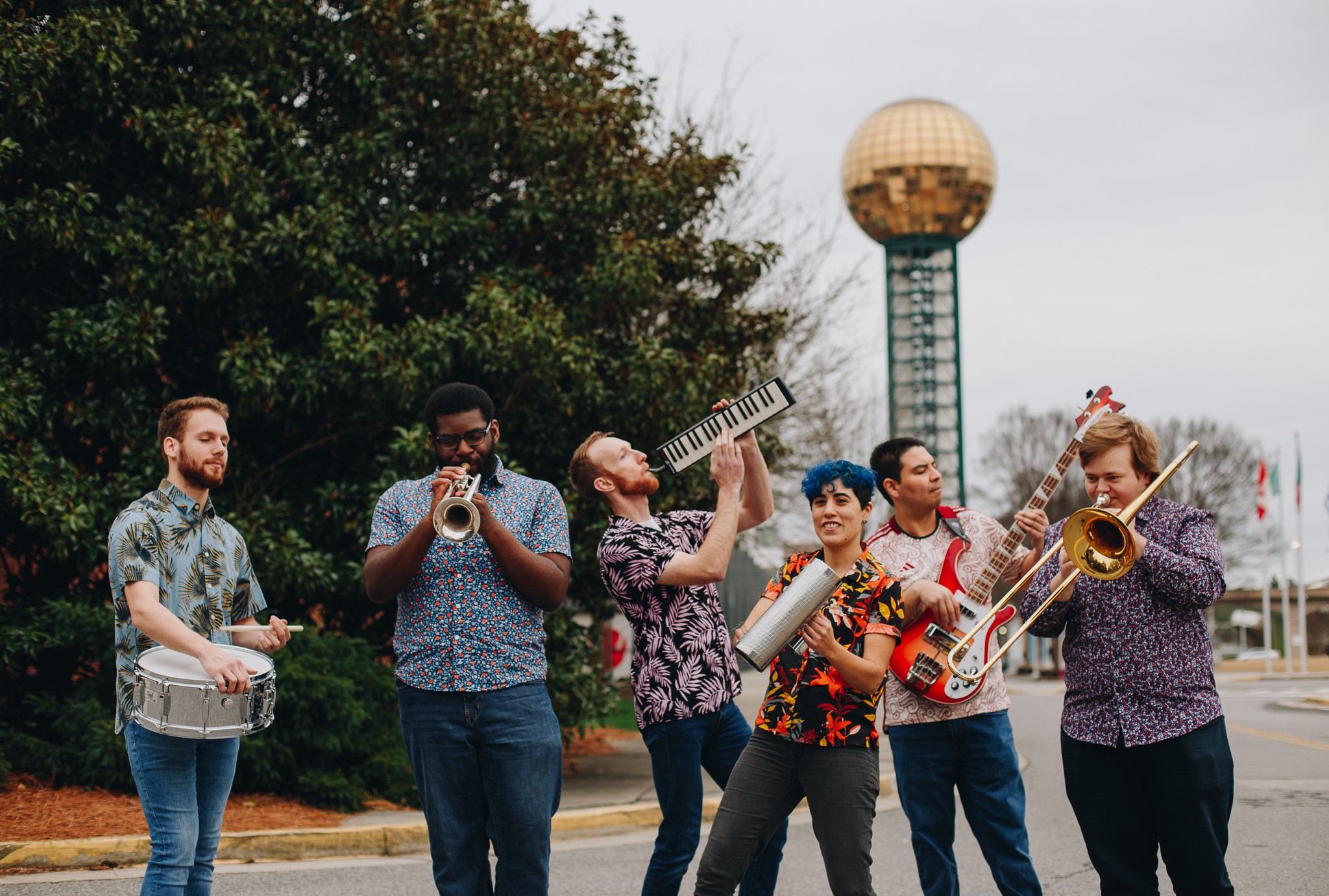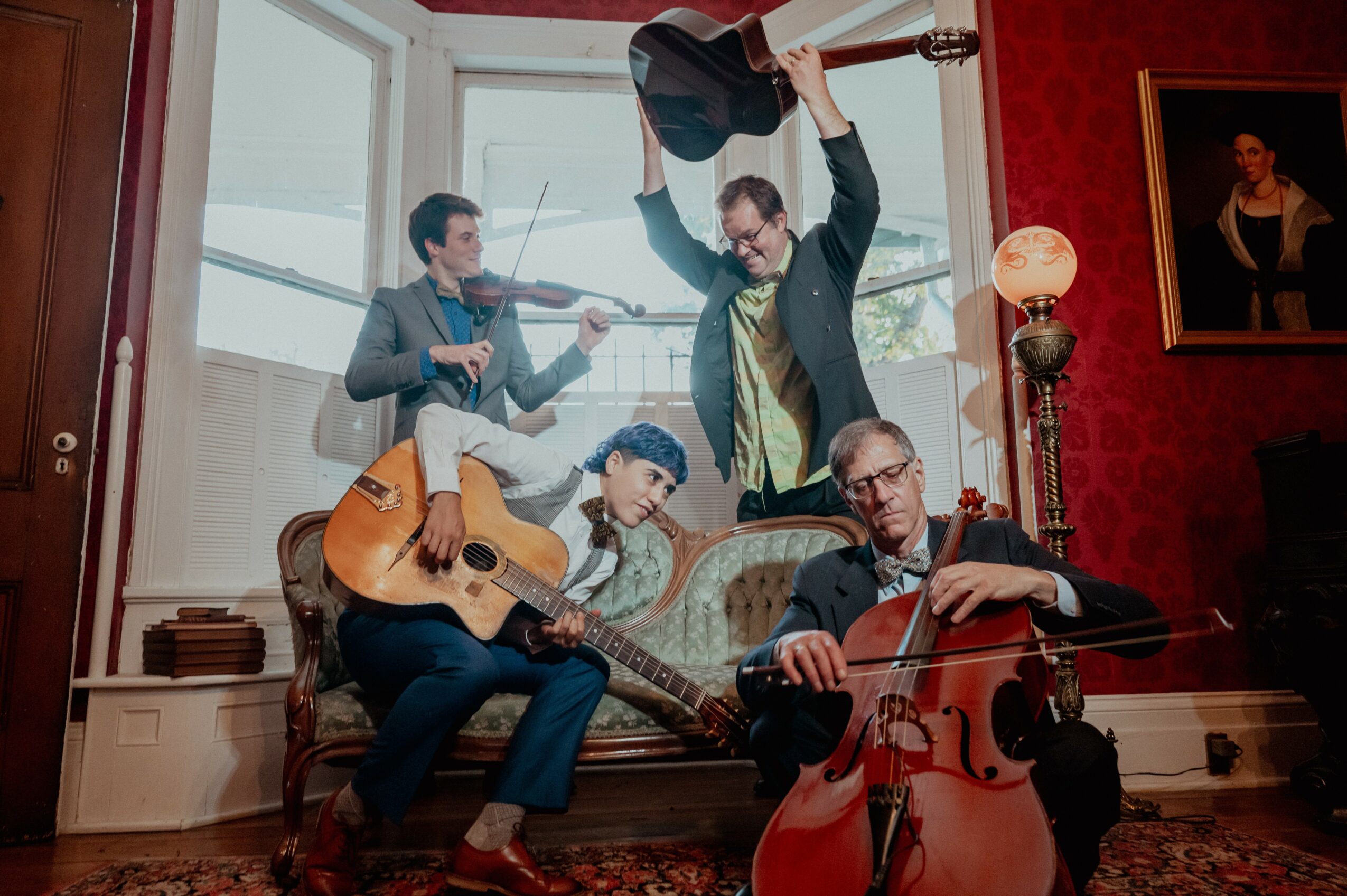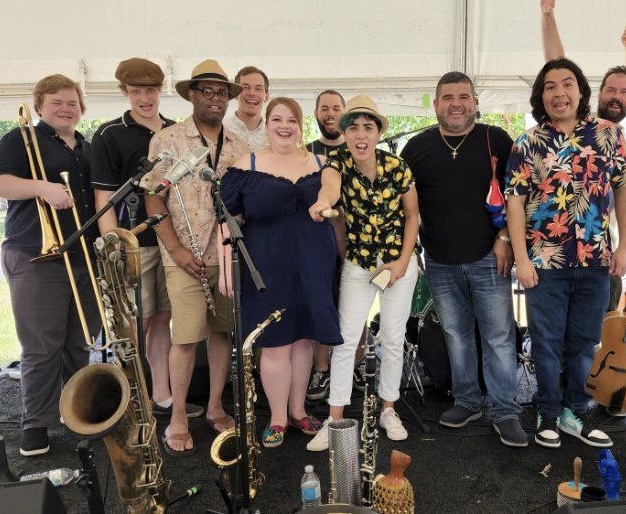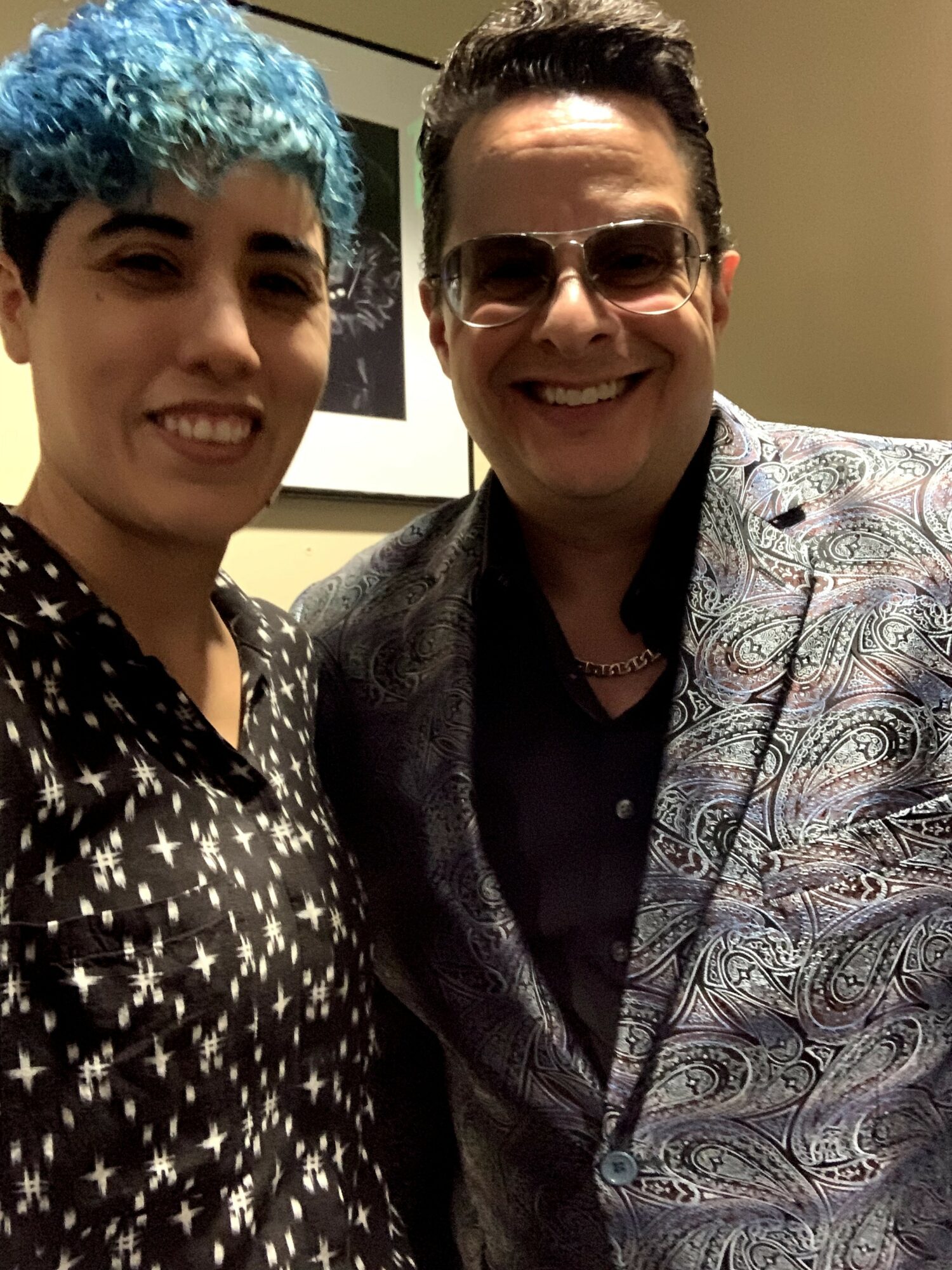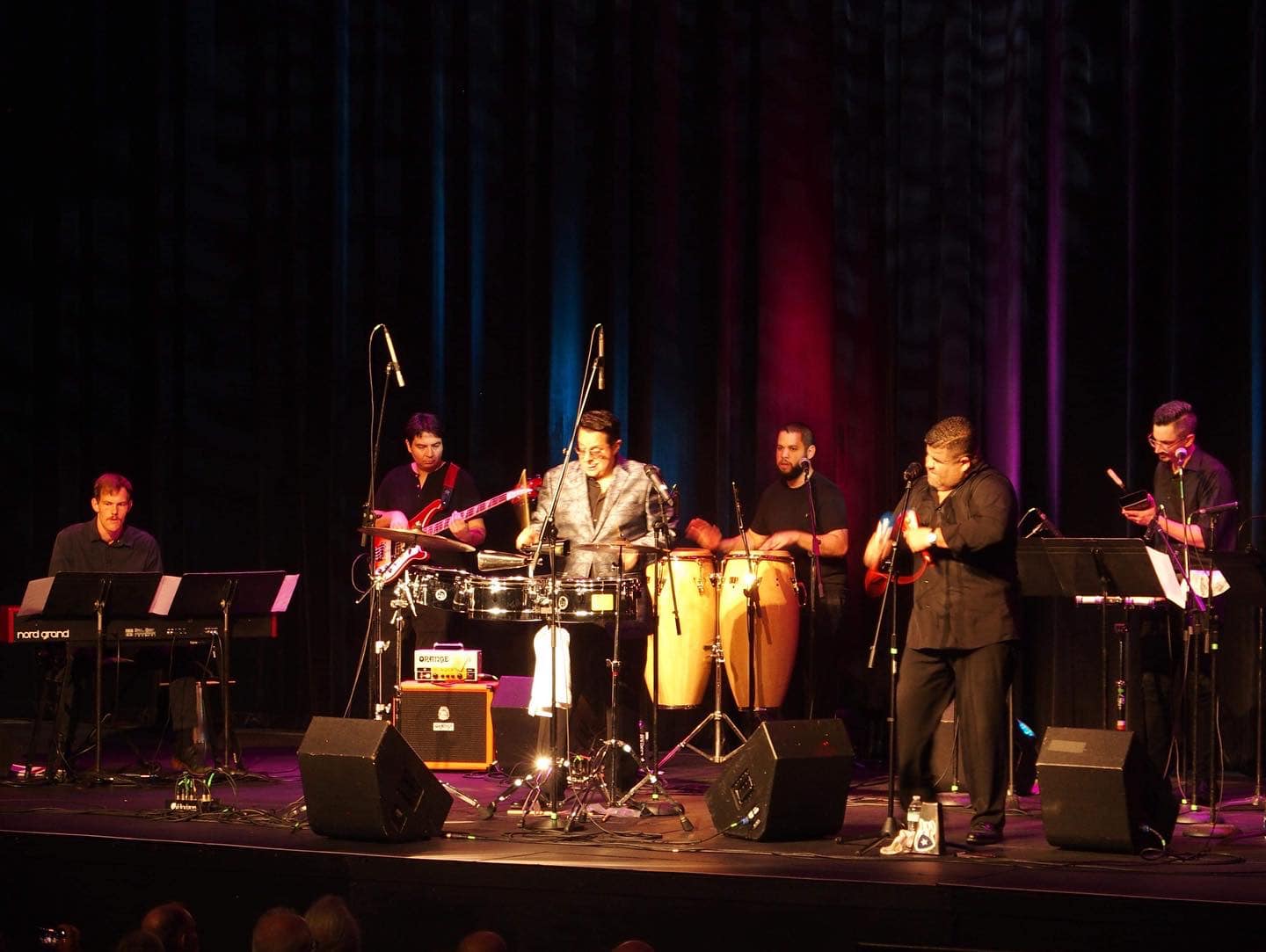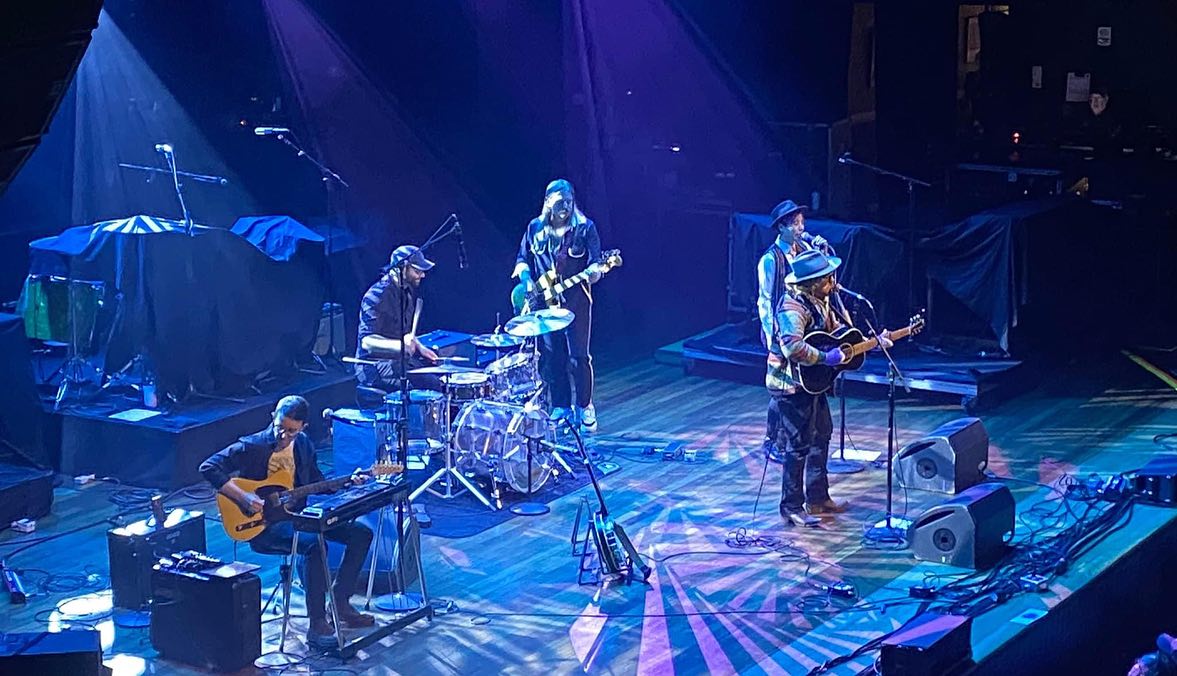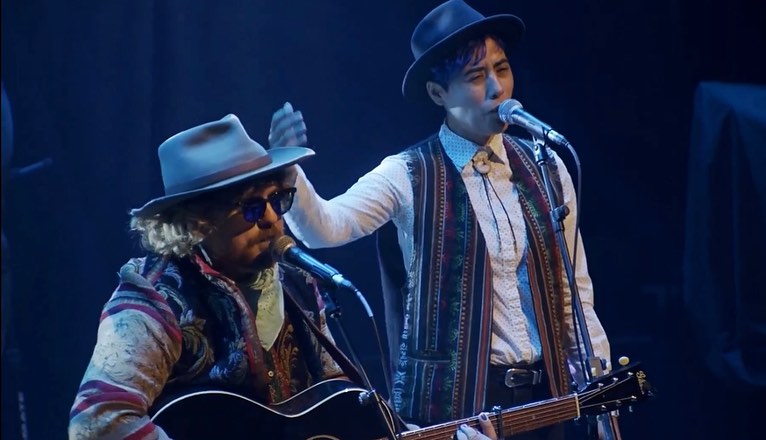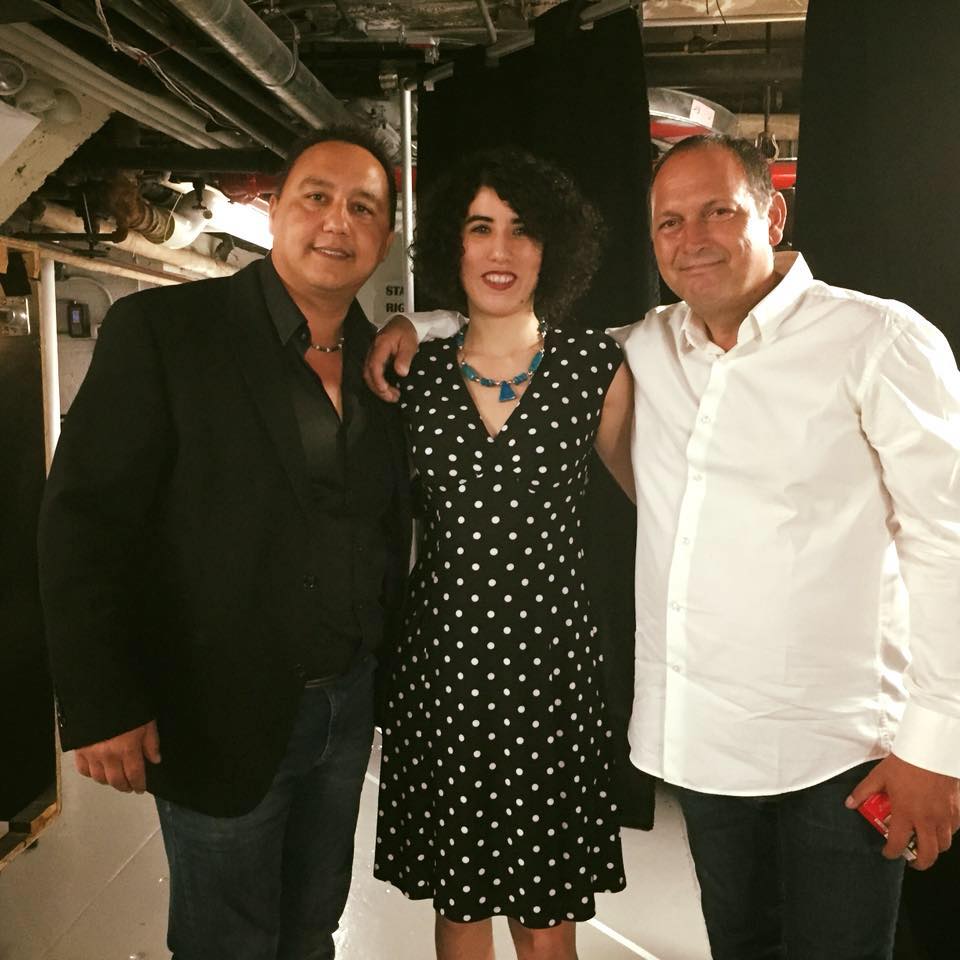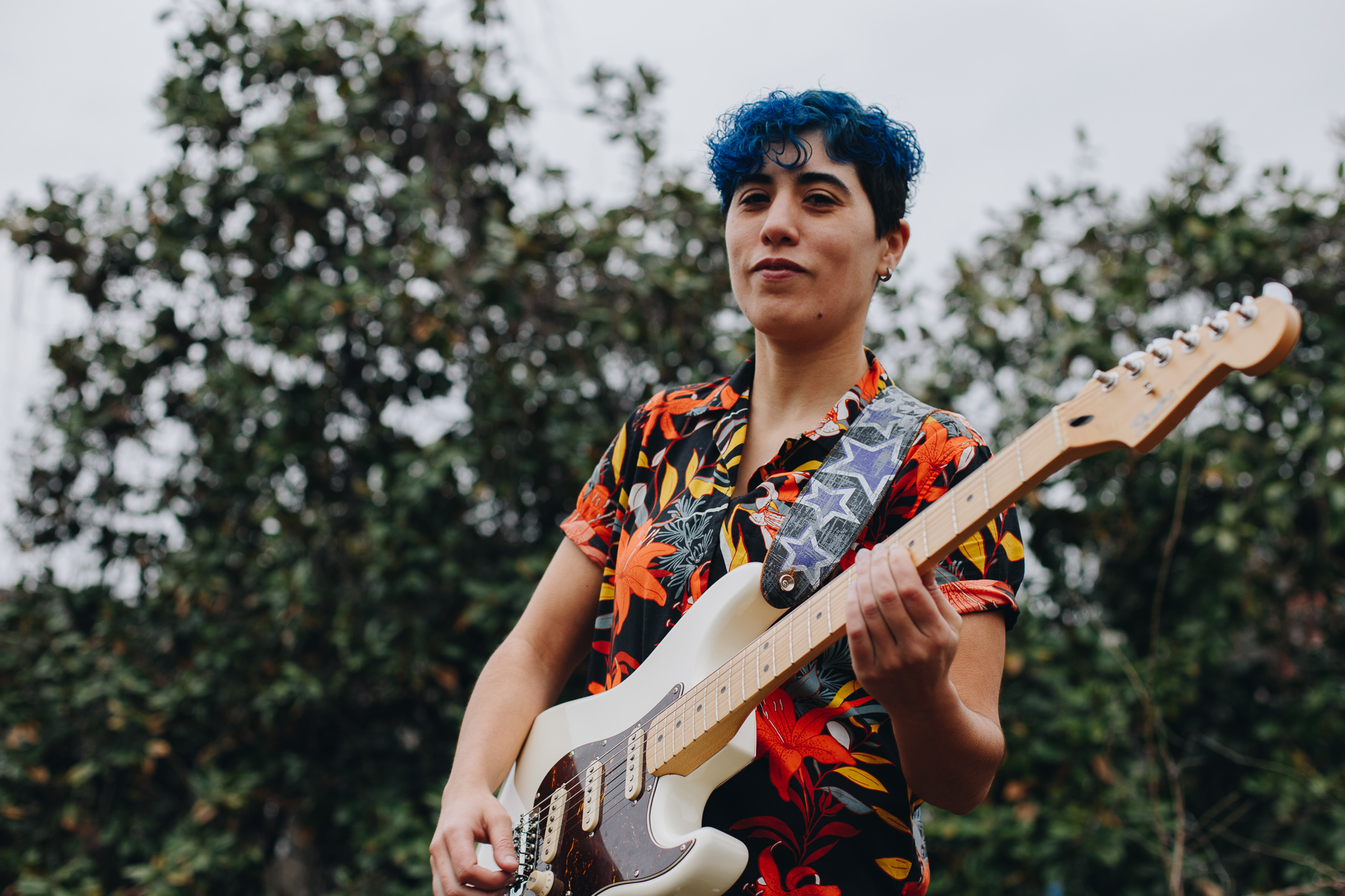

Today we’d like to introduce you to Andrea Uriarte
Hi Andrea, it’s an honor to have you on the platform. Thanks for taking the time to share your story with us – to start maybe you can share some of your backstory with our readers?
I started playing guitar as a child at age 9 in Peru where I was born and continued in Argentina, where I was raised. I then moved to the U.S at age 15. After struggling to adapt for a few years I found a local band that played Django Reinhardt. Django spoke directly to my heart, I was already interested in jazz guitar and the acoustic guitar was my instrument of choice, so I naturally became a dedicated student of the style. The only problem was that I lived in Knoxville and here were no guitarists who knew the style enough to teach me. I had to manage with Youtube and books but it was enough to get me started and I then got drafted for a band named “The Johnson Swingtet”. This was my first band. I was working as a server at The Bistro (At The Bijou) in 2007 and would talk to the owner about my band in hopes that she would pick up on the idea to start having live music, which they didn’t have back then. We started as the house band and would play every Friday. Shortly after I was managing the booking and added a space for UT students to perform in the middle of the week and other jazz acts to perform on the weekends. One anecdote about that band is that we got hired to open for Etta James and I was so nervous I almost didn’t want to do it, it was very early in my career. It unfortunately got canceled due to illness and she passed later that year. This incident would teach me to never shut down to the opportunities I might not feel up to again.
I stayed in that band until 2011, when I decided to branch off with my own combo. That’s when “Kukuly and the Fuego” was born. A couple years later I met Stephane Wremble, an internationally recognized Gypsy Jazz guitarist who had recently won Grammy for the music he made for a Woody Allen film. I got to perform with him and he became my friend and teacher. This is when I was finally introduced to the style in a more formal way. I since then have attended numerous week long workshops and studied under some of the biggest names in Gypsy Jazz. A few years later, I became the manager for Stephane’s workshop and concert series “Django A Gogo” which culminated at Carnegie Hall and Town Hall on different years. During this opportunity I was able to take lessons from and work aside artists like Al DiMeola, Stochelo Rosenberg, Larry Keel and Sam Bush.
We continued playing regionally with the band and opened for names like Tommy Emanuel and Frank Vignola. Then, around 2018, fantastic local saxophonist Will Boyd convinced me to put a salsa band together. I had for many years neglected my cultural roots in my efforts to adapt to my move to the US, but there was a need for latino representation here in Knoxville. That’s how my second band, Candela, was born. We have been playing consistently with that band providing live popular latin music to the region. We also have been the backing band for Tito Puente Jr. since 2023 when he comes to the region to perform.
After the pandemic I then decided to start my third band, Rica Chicha. My roots were always in rock and psychedelic music, as well as in punk and ska from Argentina in my teen years. I had always been interested in the fusion of traditional sounds with rock/punk/psychedelic music and I found myself going further into my career but not creating the music I had always had in my heart. I always felt that trying to play original latin music would be very hard in a place like Knoxville. Not only do we lack the kind of players that would have an interest in that sound but we also lack the audience. Most of latino people in town come from rural areas where most of the people listens to “Banda music” and corridos. But I wasn’t getting any younger and I simply had to get it out of my system, so I bought an electric guitar and pedals and decided to take on that journey.
it’s now been two years since Rica Chicha was born. RC has a big sound and it’s composed of synths, drums, congas, bass, electric guitar, banjo and a wind section. I’m writing in Spanglish and we do a mixture of Psychedelic cumbia, rock, punk, ska and experimental. Although still a very young band, we had already performed at Big Ears on 2023 and look forward to releasing our first single release “Conquistador” soon this year. I have also fairly recently recorded an Americana song with Adeem the Artist named “Dirt Bike” in 2023, adding Americana to the variety of genres I already play and bringing things to a full circle in regards to my cultural roots. We performed this song at The Ryman on 2023.
We all face challenges, but looking back would you describe it as a relatively smooth road?
There were certainly many struggles I had to face along the years. First there was the struggle of simply adapting to a new country and a new language. It was difficult trying to find my path in music since music is deeply interconnected with culture. As a teenager I had already created an idea of who I wanted to be and what I wanted to do within the context of where I was raised, when I moved to the states that was all removed and I had to “find myself” again. This is the reason why I gravitated towards jazz so much, it was a United Statian style and one which you could find regular work with, say with weddings and special events. I entered the country with a tourist visa as a child and overstayed it, this meant I had to reside here unlawfully and did not have access to continue to higher education. Being in this situation and wanting to have a career in music, playing jazz was not only about my passion for it, but very much a necessity. I am very grateful to have learned the style in the country where it was born, and in a place like Tennessee, which is the cradle of blues and country, but it wasn’t fully my choice to stay in the genre. Also, even trying to learn the style still wasn’t easy, being an outsider not only to United Statian culture but to the UT College where most of the scene related to jazz happens were great obstacles in my learning process. Fortunately there were a few people in the scene outside UT who took notice of me and encouraged me along the way. Artists usually also get help from scholarships offered by the government or other organizations, but again, my legal statues kept me from being able to apply to such. I also have struggled with depression which kept me from creating the community bonds necessary to find out and access other type of resources that could have help me. Independent artists have many rolls to fill and it’s full of learning curves, being in touch with the music community is elemental for success.
So, outcasted and outlawed, it was quite difficult to find a way to survive as an immigrant and musician. Now I am trying to externalize all these changes I had to go through by creating a band like Rica Chicha, which focuses on the fusion of all the different sounds life has put me through so far. This in itself is and will be a great challenge, since there is no built up audience or scene in these areas for what I do, but I’m now used to going against the grain with a strong vision of music with no borders.
As you know, we’re big fans of you and your work. For our readers who might not be as familiar what can you tell them about what you do?
I am a local guitarist and singer. I would say I specialize in world music since, even with my swing band, we like to play international songs. I would describe “Kukuly and the Fuego” as “vintage acoustic world jazz”. We not only play United Statian swing but Django Reinhardt is “Gypsy Swing”, a Gypsy-French branch of swing, but we also play son, boleros, Bossa Nova and some Italian and Russian songs giving the band that “world music’ flare. Everything from 30’s-60’s. Then “Candela” does popular latin music and Rica Chicha the fusion of vintage traditional sounds with rock and experimental. I’d say I’m known for being the world music artist in town. I am also known for my activism. I have been heavily involved in the immigrant and social justice movements since around 2010. I was in the board for “Comite Popular” for a while and also I’m a founding member of KITA (Knoxville Immigrant Transit Assistance) and NITA (National immigrant Transit Assistance).
I’m most proud of being the first latine assigned female at birth gypsy jazz guitarist, for my cultural contribution to the region as a world music and latine artist and activist and for having a unique project like Rica Chicha which has a banjo playing cumbia, something which has never been done in the USA. I should add I am most proud of being one of the fews (only one?) latine immigrant artists to appear in a Americana song (“Dirt Bike”) and performing it at The Ryman.
Networking and finding a mentor can have such a positive impact on one’s life and career. Any advice?
My advice is to shamelessly reach out to others, a lunch or cup of coffee can take you further than years sitting in front of your computer trying to figure things out on your own. Also, to always ask the question and never assume that the answer will be “no”. Don’t be afraid to ask for what you need.
Contact Info:
- Website: https://dot.cards/kukuly
- Instagram: https://www.instagram.com/kukulyjazz/
- Facebook: https://www.facebook.com/kukuly/
